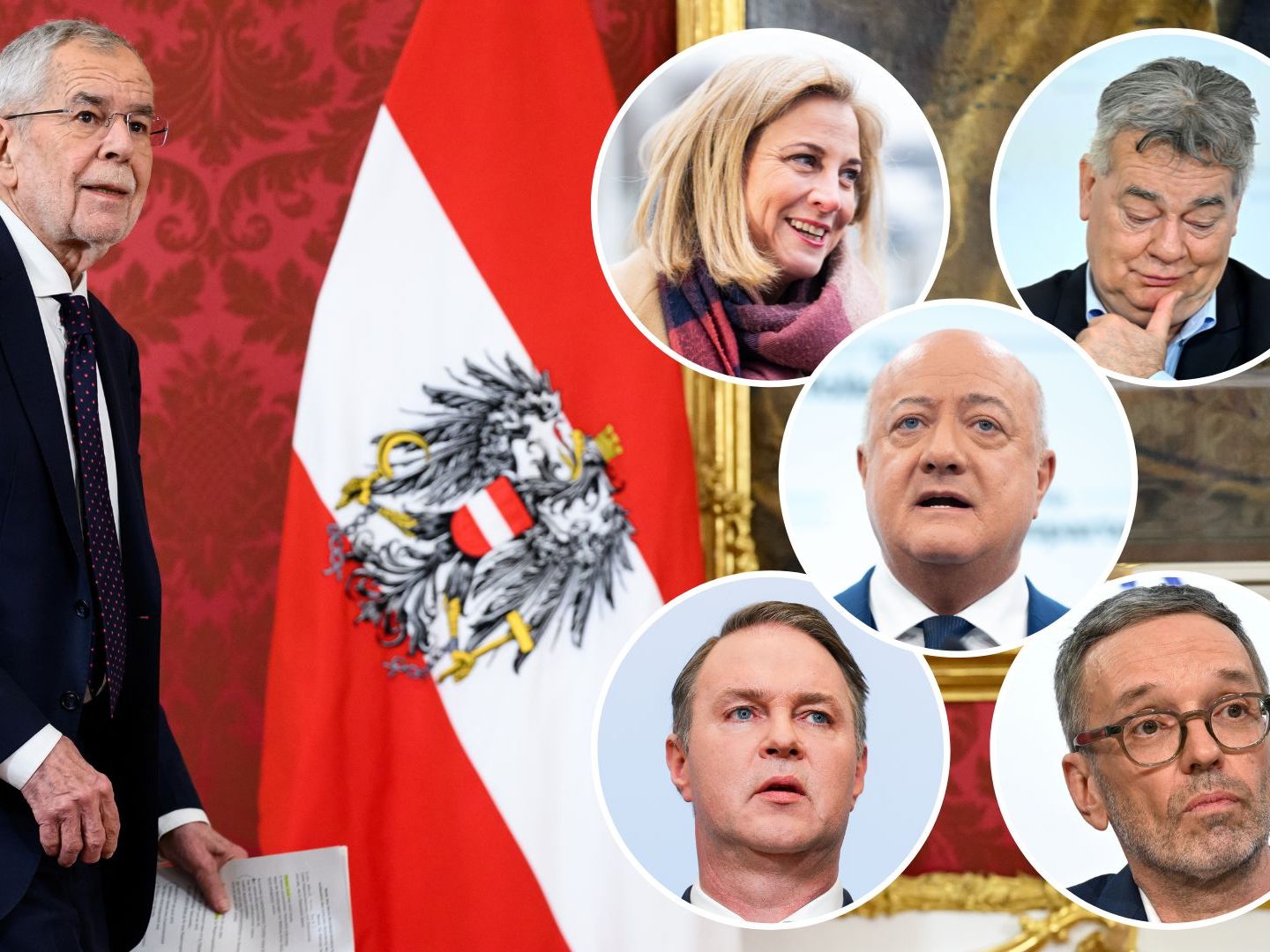"Kickl Has Failed": Parties Now Work with Van der Bellen on Coalition

The series of meetings at the Hofburg began with NEOS leader Beate Meinl-Reisinger at 11 a.m., followed by Green Party leader Werner Kogler at noon. In the afternoon, ÖVP leader Christian Stocker appeared, accompanied by Upper Austria's Governor Thomas Stelzer, among others. SPÖ leader Andreas Babler is expected at 4:15 p.m.
NEOS Leader Meinl-Reisinger in Contact with SPÖ and ÖVP
"The fact is, Herbert Kickl has failed - with his claim to form a government and to be chancellor himself," said the NEOS leader before her meeting at the Hofburg to the many journalists waiting outside. She herself is in contact with the party leaders of SPÖ and ÖVP and will discuss the various options with them as well as with the Federal President, so that "the population quickly gets a government."
She had already shown the possible alternatives to the ÖVP in the past few days, to demonstrate to the People's Party "that one is not at the mercy of Herbert Kickl's fantasies of omnipotence." The NEOS want to show constructiveness in all options, said Meinl-Reisinger upon leaving the Hofburg.
Kogler Sees New Chance for Pro-European Government
The population sees that "Emperor Kickl is naked," said Kogler before his conversation with Van der Bellen. It is now about cooperation among the constructive forces, for a majority in the National Council, ÖVP and SPÖ are needed. The Green Party leader emphasized - as the Federal President did the day before - the importance of willingness to compromise for liberal parliamentary democracy. He spoke of "new optimism": "We now have the chance to get a pro-European government again. A government that also values media freedom, by the way, and allows the institutions of the Second Republic to function."
"Compared to what was threatening now, we have much, much more in common than what divides the parties," Kogler said upon leaving the Hofburg. The divisive issues must be handled in such a way "that there are no irreconcilable differences again." In this way, a government could be formed in the coming weeks. He described the role of the Greens in the event of an ÖVP-SPÖ government as follows: "Whenever it comes to having majorities, the Greens play a role when it gets tight for ÖVP-SPÖ - although I think that's an exaggerated concern - but we will always hold talks." They could also "stand by with advice and support," as the Greens have shown in recent years that they can govern. A new election is also a possibility and "not a tragedy," "it's just that there was just an election, so those who were elected should see that they achieve something together."
ÖVP Leader Stocker Speaks of "Difficult Situation"
ÖVP leader Christian Stocker arrived at the Hofburg at 2:30 PM. Accompanying him were the two chief negotiators, club chairman August Wöginger and Secretary General Alexander Pröll. Surprisingly, Stelzer was also present, accompanying the party leadership to the Hofburg. Stocker remained quite reserved both before and after the meeting. Van der Bellen had invited them for talks, he said. The aim now, after the breakdown of negotiations, is to find a way out of this "difficult situation," he stated upon his arrival. When asked why Stelzer was also present at the meeting, Stelzer said after the approximately one-hour conversation that it was now important to show that there is great unity within the ÖVP and that they are very aware of the seriousness of the situation. When asked if he would be present at the talks more often, he merely pointed out that it was now up to the Federal President. Stocker also emphasized only the urgency of progress afterwards.
SPÖ Leader Babler Against New Elections
SPÖ leader Andreas Babler was the last to meet with Federal President Alexander Van der Bellen. Babler appeared just before his appointment with the president, accompanied by ÖGB leader Wolfgang Katzian, club vice-chairman Philip Kucher, and federal manager Klaus Seltenheim, in front of the Hofburg. After a good hour, he reported in an extremely brief statement about a "good conversation." He also emphasized to the Federal President that the SPÖ is always ready to "take responsibility" in this country. Beforehand, he had consulted with his presidium and subsequently announced that he considered new elections to be wrong. Instead, he mentioned two options. On one hand, there could be parliamentary cooperation to quickly achieve a stable budget situation. On the other hand, these talks with the ÖVP, NEOS, and Greens could also lead to a coalition. For the talks, the SPÖ presidium has formed a rather small team, which includes, in addition to Babler, the third National Council President Doris Bures, women's leader Eva Maria Holzleitner, FSG chairman Josef Muchitsch, and club vice-chairman Kucher. The SPÖ's substantive basis is a socially just budget, which aims to support the labor market and combat inflation, especially high energy and housing costs.
In the evening, Federal President Alexander Van der Bellen thanked the party leaders for the contacts "in a constructive and trustworthy atmosphere." A "close exchange" was agreed upon in the coming days. The decision on how to proceed is therefore likely to be awaited. "Everyone is aware that swift and responsible action is now necessary," was stated in the written statement of the head of state. Van der Bellen had spoken on Wednesday of four options following the failure of the Blue-Black coalition and the return of the government formation mandate by FPÖ leader Herbert Kickl: a new election, a minority government tolerated by parliament, an expert government, or a coalition of several parties. Apart from Blue-Black, the ÖVP and SPÖ would also have a (only one vote secured) majority in the National Council. Therefore, both NEOS and Greens could provide the necessary stability with their votes.
LIVE Blog on Government Formation
(APA/Red)
This article has been automatically translated, read the original article here.





